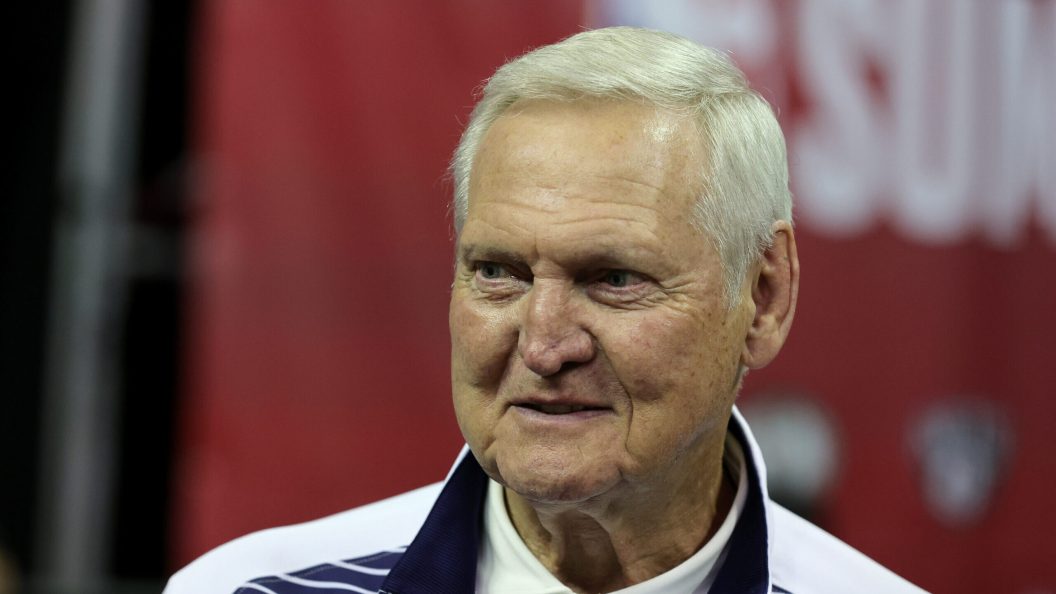When I called NBA legend Jerry West about 16 years ago, he answered his own phone. It was very old-school.
Videos by FanBuzz
I was working on a piece for the National Basketball Retired Players Association and I was to ask West about the looming Olympics, Team USA and the modern NBA. He wasn't over-the-top friendly, but he was polite — and very direct.
Right away, I knew he was all about the game. One-hundred percent. He was also brutally honest.
To offer some perspective, West was one of about eight legends I spoke with for the piece. Other than maybe Rick Barry, everyone else was more personable than West. That's not a criticism. It's just to show it was all basketball with West.
He was also my longest call. When to came to the game, he was willing to talk for 30 minutes.
This was 2008, a year after he had retired as the top basketball executive with the Memphis Grizzlies. (He didn't stay retired for long, becoming an executive board member with the Golden State Warriors in 2011, before eventually joining the Los Angeles Clippers in 2017.)
But he spoke freely, and he spoke a lot, about the state of the game. He wasn't a fan at the time. He thought too many of the players were putting the lifestyle over basketball. He felt as if the coaches and people running the teams were overpaying for marginal talent. He still loved the game and the men who played — but his passion was clear. The NBA needed some fixing and there was reason to be concerned about the state of the game, he insisted.
And he did so over and over.
OVERCOMING THE ODDS
West went on to talk about Kobe Bryant, who he traded for as the top executive with the Los Angeles Lakers, and more about LeBron James. He cited them as two examples of players who worked their tails off despite their fame and success. He loved Bryant. He widely respected James. That much was very evident. They loved the game like he did.
West grew up poor and the son of an alcoholic in Cabin Creek, W.Va., the fifth of six children in his family. He once said he slept with a shotgun under his bed out of fear he would need to protect himself from his physically abusive father.
His older brother, David, was killed during the Korean War. West said that changed him from a fairly crazy, outgoing child to a shy and controverted teen.
Basketball was his escape, his therapy, from all the trauma. So he spent hours upon hours on a dirt court at his home, lofty jumpers, avoiding the fairly troubling home life around him.
You know the story from there. Despite being labeled frail as a teen, West earned a scholarship to West Virginia University. He became the greatest player in the school's history, his approach to practice never changing — it was hours and hours in the summer, lofting jumpers, working on ballhandling, passing the ball off a brick wall, practicing until he got blisters on his hands, and then some. Much of it taking place on the same dirt court where he took his first shot.
Like West, James grew up poor and eventually became all about the game. West loved how James distributed the ball, despite the fact he could probably score every time down the court if he saw fit. He viewed LeBron as a throwback, a guy who played the game the way it was meant to be played. He spoke remarkably highly of Kobe. And even more glowingly about LeBron.
THE BASKETBALL MAN
West died on June 12 at the age of 86. He made an amazing nine trips to the Finals as a legendary guard with the Lakers. He only won once (1972). He later became the top executive with the team, assembling the Magic Johnson-led Showtime Lakers that won five titles. West held that role for nearly two decades.
During our phone conversation, it seemed the losing ate away at him more than the accomplishment. NINE Finals appearances were amazing. But in the eyes of West, he admittedly focused only one eight of them.
That's because his world was the game. Much like former NFL coach and executive Al Davis, West demanded excellence.
He admitted to me that his expectations were always sky-high, maybe even unreasonable. While basketball helped rescue him, it also sometimes tortured him.
Since 1969, West's silhouette has served as the NBA logo. When I asked him about it, I got the lone laugh in our conversation. He said of everything he accomplished, that is how he wanted to be remembered.
With a basketball by his side.
(This article originally appeared on Hoops Wire and was republished with permission.)
